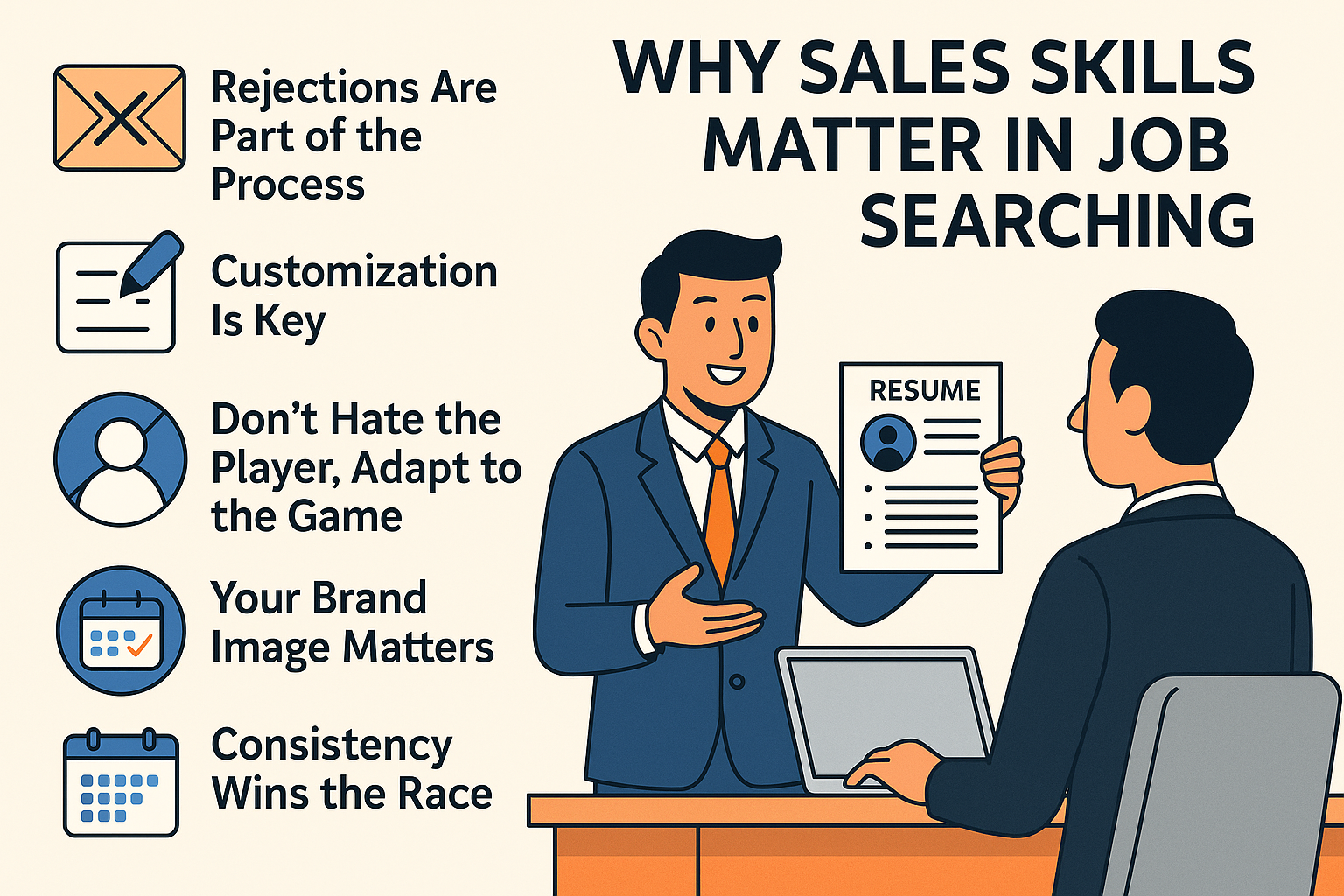
Why Sales Skills Matter in Job Searching
It is often said that everyone should develop strong sales skills, even for the most basic jobs. Whether or not we work in sales, we constantly find ourselves "selling"—our profiles during job searches, our achievements when seeking promotions, and even our ideas in everyday professional interactions.
Job searching, in particular, mirrors a sales job in many ways. Crafting an eye-catching resume, presenting yourself in a clear, concise, and compelling manner, and negotiating an offer all require sales techniques.
There are five key similarities between job searching and sales—and one major difference.
1. Rejections Are Part of the Process
Both job seekers and sales professionals face frequent rejections. A crucial skill in both fields is resilience—pushing forward despite rejection emails and unanswered applications. Just as a salesperson must continue reaching out to potential clients, job seekers must keep applying, networking, and refining their approach. The more opportunities you pursue, the higher your chances of landing a job. A "no" today doesn't mean a "no" forever.
2. Customization Is Key
In sales, a one-size-fits-all approach rarely works. A good salesperson tailors product demos and pitches based on the audience and client needs. The same principle applies to job applications. Each resume and cover letter should be customized to align with the specific job description, highlighting the most relevant skills and experiences. Personalization makes a significant impact in both job searches and sales.
3. Don't Hate the Player, Adapt to the Game
Neither job searching nor sales is personal. Companies reject candidates for many reasons beyond their control, just as clients may pass on a deal for factors unrelated to the salesperson’s efforts. Complaining about an unfair hiring process or biased decision-making won't change the game. Instead, success comes from understanding the rules and adapting accordingly. Learning how to navigate the system—whether in hiring or sales—gives you an edge over competitors.
4. Your Brand Image Matters
Just as companies build brand trust through strong marketing, job seekers must maintain a professional and compelling personal brand. A well-structured LinkedIn profile, a polished resume, and a strong professional network shape how recruiters perceive you. In sales, elements like client testimonials, well-designed marketing materials, and a professional website contribute to credibility and trust. Your personal brand should consistently reflect your expertise and reliability.
5. Consistency Wins the Race
Success in both job searching and sales requires persistence and consistency. Sales professionals don’t just make one call and close a deal—they follow up, nurture leads, and build relationships over time. Likewise, job seekers must continuously apply, follow up on applications, and refine their approach. The more consistent you are, the more likely you are to see results.
6. The One Key Difference: Closing the Deal
The biggest difference between job searching and sales is the number of "deals" needed. In job searching, you only need one "yes"—one successful offer to achieve your goal. In sales, however, you must continuously close deals to sustain business growth. From a job seeker’s perspective, this can be motivating—your persistence is leading to just one major breakthrough rather than an endless cycle of selling.
Final Thoughts
If you're currently in the midst of a job search, think of it as your personal sales journey. Keep refining your approach, expanding your network, and staying resilient. Just as in sales, the more effort you put in, the higher your chances of success. Keep pushing forward—you’re getting closer every day!
Disclaimer: This article was originally written by the author and enhanced with AI assistance for clarity, structure, and readability.
All Rights Reserved. | Made with ♥ by © Emre Ozgurler in Portland, OR